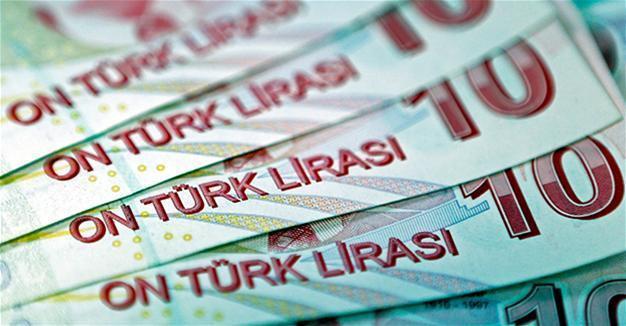Central Bank’s rate decision has limited effect on Turkish lira
ANKARA

Turkey’s Central Bank on Jan. 24 increased the upper limit of its interest rate corridor to 9.25 percent from 8.5, a move that proved fruitless on the ailing Turkish Lira.
The Central Bank’s Monetary Policy Committee (PPK) kept its one-week repurchasing rate unchanged at 8 percent while the overnight borrowing rate was kept at 7.25 percent.
But with markets hoping for even more and taken aback by the absence of any move in the repurchasing rate, the lira initially lost 1.95 percent in value against the U.S. dollar after the announcement.
It later stabilized to trade at 3.77 against the greenback, marking a 0.5 percent loss in value.
Some economists expected interest rates to be increased by 100 basis points - or a full percentage point - after the lira lost seven percent of its value against the dollar in the first four weeks of 2017 alone.
The lira lost a quarter of its value against the dollar over the last year.
The Central Bank said in a statement that domestic demand in Turkey was on a “weaker” course, warning that a “significant rise in inflation” was expected in the short term.
The bank pointed to food price volatility as one of the main factors that could drive up prices after inflation was reported at 8.5 percent in December, compared with 7 percent in the previous month.
“The committee decided to strengthen monetary tightening in order to contain the deterioration in the inflation outlook,” the statement said.
Economists said the decision showed the bank was not convinced by the need to take radical action to halt the plunge in the value of the lira.
“We feel the bank still thinks that this Turkish lira depreciation will be a temporary one and its impact on inflation will be temporary,” said Özgur Altuğ, a chief economist at BGC partners in Istanbul.
Deputy Prime Minister Mehmet Şimşek said on Twitter that the move indicated the bank was tightening its monetary policy and was willing to “tighten further” and that “price stability remains the top priority.”
The lira depreciated by 10 percent against the dollar since the start of 2017, making it the world’s worst performing major currency. That comes on top of double-digit falls both last year and the year before.
Economic growth in the third quarter of the year turned negative for the first time in seven years and was forecasted at just 3.2 percent for 2016. Unemployment rate rose to 11.8 percent in October, the highest in more than six years, according to a data from last week.
A state of emergency decree released on Jan. 22 listed a number of fields that indebted Turkish companies could payback to at a stable exchange rate of 3.5338, which is significantly below the current market rate.
 Turkey’s Central Bank on Jan. 24 increased the upper limit of its interest rate corridor to 9.25 percent from 8.5, a move that proved fruitless on the ailing Turkish Lira.
Turkey’s Central Bank on Jan. 24 increased the upper limit of its interest rate corridor to 9.25 percent from 8.5, a move that proved fruitless on the ailing Turkish Lira.